#chinese fiction
Text
Buddhist Deities Exiled From the Western Heaven
My new article examines the reasons why three Buddhist deities from Ming-Qing vernacular Chinese literature are exiled from the Western Heaven.
Master Golden Cicada (Jinchan zi, 金蟬子) (a.k.a. Tripitaka, Tang Sanzang, 唐三藏) from Journey to the West (Xiyouji, 西遊記, 1592) - a Buddha disciple who is caught sleeping during the Tathagata's sermon.
Miao Jixiang (妙吉祥) from Journey to the South (Nanyouji, 南遊記, c. 1570s-1580s) - A Buddha disciple who kills a belligerent sage on the grounds of the Thunderclap Monastery.
Great Peng, the Golden-Winged King of Illumination (Dapeng jinchi mingwang, 大鵬金翅明王) from The Complete Vernacular Biography of Yue Fei (Shuo Yue quanzhuan, 說岳全傳, 1684) - An avian dharma protector who kills a stellar-spirit for farting during the Tathagata's lecture.
The article analyzes them together and notes parallels, even with concepts from Greek philosophy.
The motif might serve as a good idea for writers wanting to create an OC with an interesting backstory. I have, for example, previously used it to suggest a fictional origin for Sun Wukong as a hot-tempered Bodhisattva (see the 06-16-23 update here).
#Buddhist deities#Chinese fiction#Master Golden Cicada#Golden Cicada Elder#Journey to the West#JTTW#Miao Jixiang#Journey to the South#JTTS#Great Peng#Great Roc#Yue Fei#story idea#story motif
45 notes
·
View notes
Text
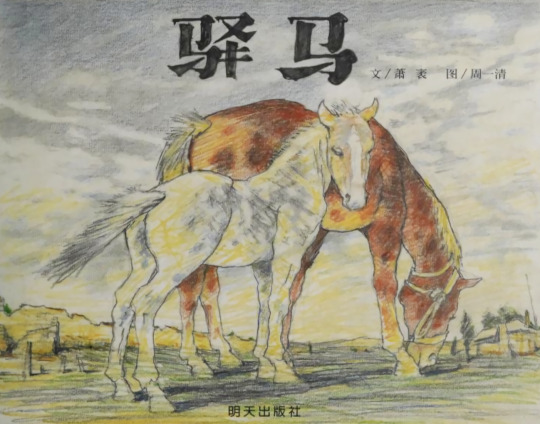
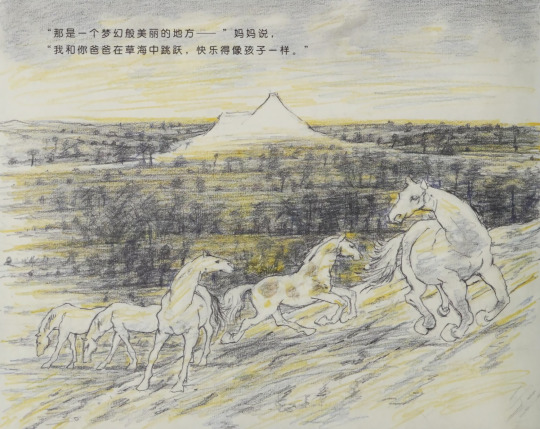
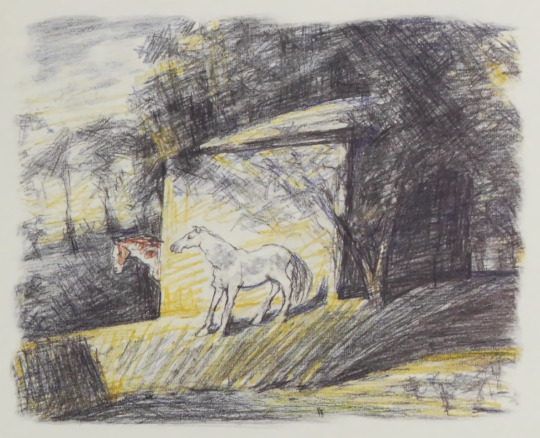
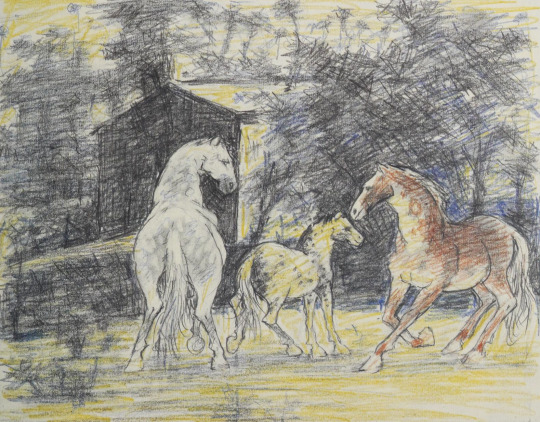
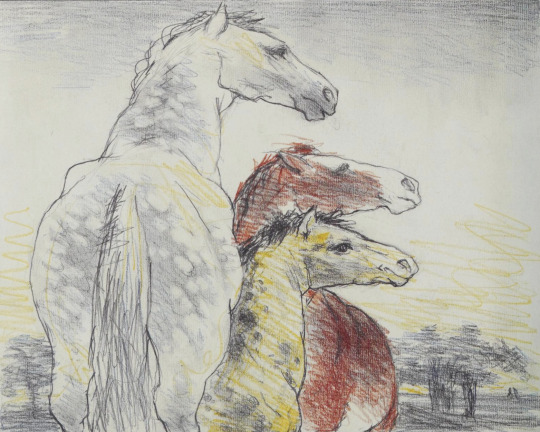
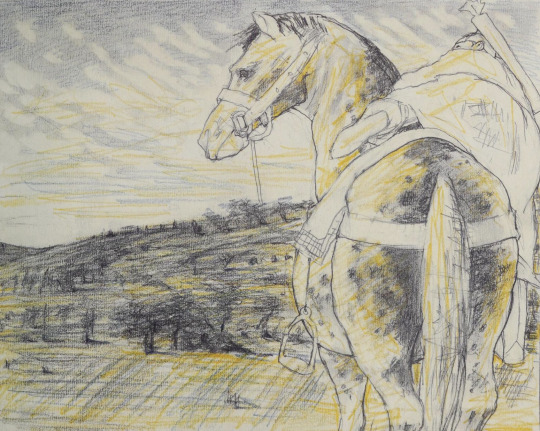
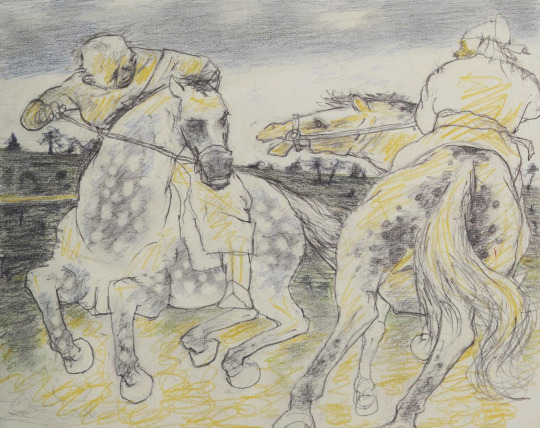
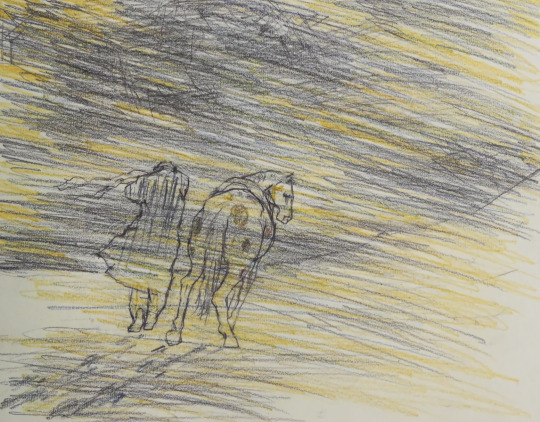
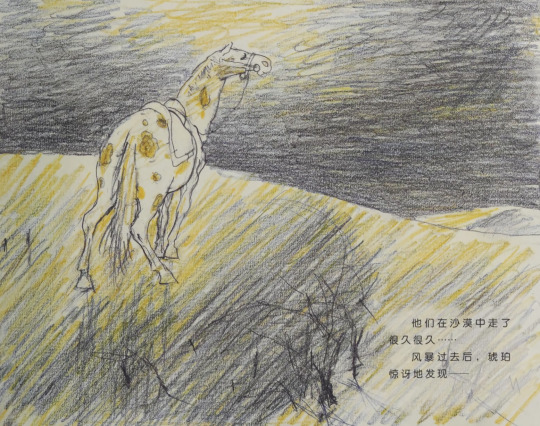
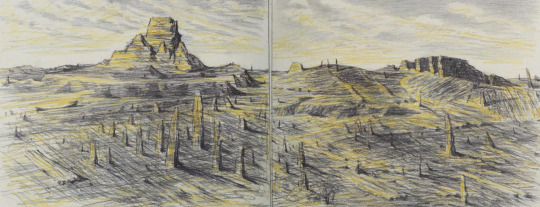
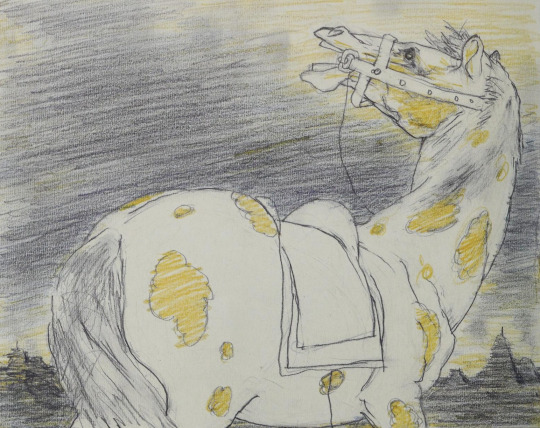
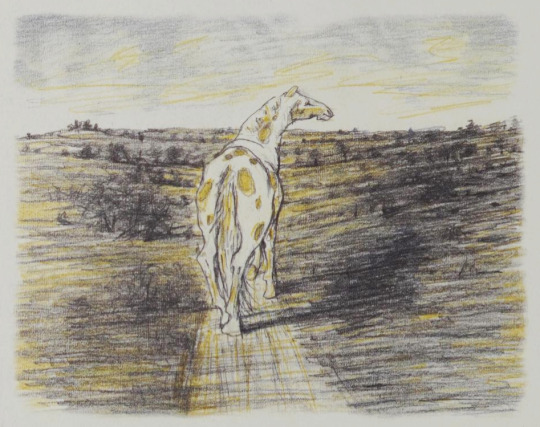
Yi Ma (2008) written and illustrated by Mao Xiao
#my first non-English book!#found on the internet archive#this was the first book to need major lighting change#and i had to watch a youtube tutorial on how to so it#but the drawings look so nice#and theyre easier to see#and the yellow stands out beautifully#today is my birthday#illustration#horse#equids#horse art#horses#china#chinese literature#chinese horses#chinese fiction#childrens books#childrens fiction#picture books#colores pencil#photopia#internet archive#mr crisp#yi ma#mao xiao
102 notes
·
View notes
Text

White Snake and Other Stories by Geling Yan, translated from the Chinese by Lawrence A. Walker, first caught my eye because of its queer title story. This interpretation of a gender-bending folk tale features a denounced ballerina and a mysterious official who calls on the bare, isolated home where she's under house arrest. I won't spoil it here, but the story, and its queerness, didn't disappoint.
All of Yan's stories in this collection are rich and explore the censorship, systemic violence, and silencing. People experience pockets of love or realness in a paralyzing environment of regimented duty and the need to survive in a society of scarcity. Women, in particular, are forced to sacrifice all kinds of things to find a place for themselves in a world where they have few options and few weapons at their disposal. One of my favorites was "Death of a Lieutenant," in which a man is forced to his breaking point in a story that pushes angrily against the normalizing of poverty, censure, and hunger.
This collection was all around excellent, and I'm glad I was drawn to it and finally pulled it off my to-read shelf! When I first hunted it down, it was difficult to find—you'll have the best luck on used book sites such as ThriftBooks.
Content warnings for homophobia, sexual harassment, suicide, abortion, sexual assault, ableism.
#white snake and other stories#geling yan#chinese fiction#chinese literature#women in translation#sapphic tales#my book reviews
14 notes
·
View notes
Text
Relationship with Star Wars is over Invisible Planets by Hao Jingfang is IN this is what the worldbuilding in SW should have been like
21 notes
·
View notes
Text
Strange Beasts of China
Yan Ge 颜歌, Jeremy Tang
Publisher: Melville House Pub
Genre: literary, speculative
Year: 2006 (Published in English 2021)
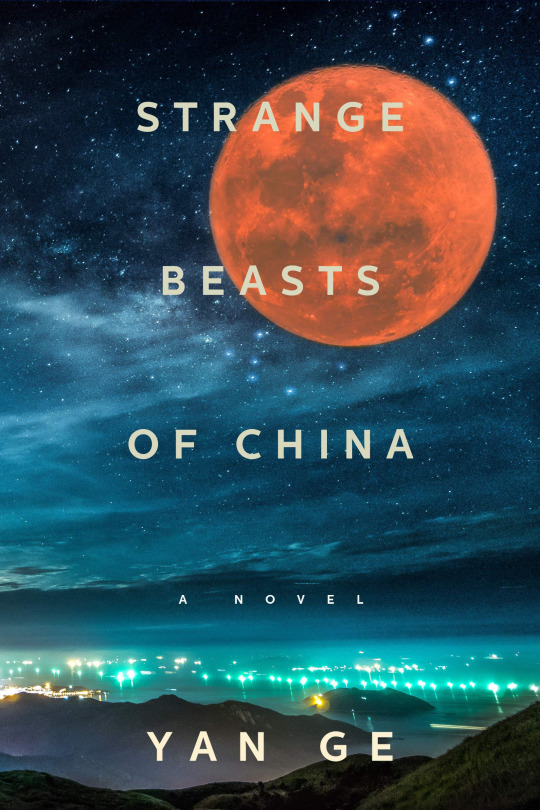
I just finished Strange Beasts of China by Yan Ge, translated by Jeremy Tiang. And it definitely is a novel to chew on. The novel follows an unnamed narrator—a former cryptozooligist who left her scientific career behind to become a novelist. She had studied ‘beasts’ under her illustrious professor but quit because she couldn’t handle treating the beasts like less than human.
The novel is broken down into nine parts and an epilogue, each a rumination of a different kind of ‘beast.’
The more familiar you are with the Chinese language and mythology, the more rewarding this book is. The first section of every chapter is written like field notes about the beasts—their appearance, their habits, their mysteries—but is careful each time to say “but besides these differences, they are just like humans.” It turns out that in the mandarin version, these sections are written in archaic language. I wish the translator had leaned more into that.
There is a brother-sister duo named Cloud and Rain which is a play on the saying 云雨 which is a saying from an old Chinese poem and is a euphemism for sex (like ‘birds and bees’) this plays into the story because of the different ways these two characters fall in love, the brother falls in love with a man and has to hide his identity so they can be together, while Cloud is sold to a wealthy man to bear his children. There’s also a character named Zhong Kui which is a famous character in Chinese literature.
But I think this story can also stand on its own. The people that the narrator meets each have their own story and when it ends these stories are over: she’s the only connecting thread between them.
My favorite was the tale of the ‘flourishing beasts’—an all female group that live on the outskirts of the city in gardening communes. When they die, their sisters cut them into 8 parts and plant them, and if they’re lucky, a new one will sprout from her bones, usually only 2 or 3 per body. The narrator runs away after a marriage proposal by a crazy rich man, where she spends time with a flourishing beast named Methuselah who was her mother’s friend. There, they tell her that they’ve been having problems with wealth-seekers cutting down the sprouts in the middle of the night for their amazing wood. The members are upset, and the narrator assumes because of the tragedy of killing a sister.
[spoilers]
But as the narrator tries to escape her own sadness, a young flourishing beast begins to follow her around, Locust. The narrator notices that the bluish markings on Locust are much lighter than they are on Methuselah, and Locust is beginning to look like the narrator. That night, Methuselah dies, and she’s cut into 8 pieces. The narrator goes home, where she discovers the crazy man is dead, having bit his own tongue and choked on the blood, but he left the narrator something in his will: a chair. A wooden chair, carved from the wood of a young flourishing beast. When the narrator unpacks the chair, the face imprinted on it moves. The narrator goes to visit Locust who now closely resembles the narrator. She discovers that the flourishing beasts grow to resemble those who tend them, and that everyone’s conception of them is wrong. SpoilerThe ones who look human are actually diseased and the sisters who grow to be trees are their purest form. The highest honor is to be made into something useful from your wood. The crazy old man fell in love with the woman trapped in the chair, who was tended to by the narrator’s mother. When the crazy man saw the narrator he thought it was the woman in the chair. But she was jealous and so she bit his tongue off and killed him.
[end spoiler]
Throughout the story we follow the narrator’s tumultuous life; she’s a bit of an abrasive character, drinking and smoking, and she feels the pain and suffering of the world very keenly. The entire novel is supposed to be her effort to get the people of Yong’an to understand beasts better, and her life is threaded into the story: her love for her own mother, the mystery of her father, and the rude professor who claimed her as his favored student, even after she leaves the cryptozoology program to be a writer.
All in all the book is philosophical in nature, with some horror aspects. The twist ending is fantastic but I don’t think the epilogue was necessary. For the full 5 stars, I would need some touch ups of the translation.
storygraph | bookshop.org | local houston
★★★★½ what does it mean to be human stars
#book review#strange beasts of china#yan ge#chinese fiction#speculative fiction#jeremy tiang#literary fiction#author chinese#contemporary#literary#speculative#2006#2021#books in translation#melville house pub#language: chinese#four stars#four and a half stars#featured
3 notes
·
View notes
Text
The Three Body Problem by Cixin Liu - Review
The blurb:
1967: Ye Wenjie witnesses Red Guards beat her father to death during China’s Cultural Revolution. This singular event will shape not only the rest of her life but also the future of mankind.
Four decades later, Beijing police ask nanotech engineer Wang Miao to infiltrate a secretive cabal of scientists after a spate of inexplicable suicides. Wang’s investigation will lead him to a…

View On WordPress
0 notes
Text
The Short Story Reader #20 – Introduction to 2181 Overture, Second Edition By Gu Shi, Translated By Emily Jin
Previous | Next
Gu Shi’s short story is the most in-depth exploration of cryosleep I’ve read yet. More so of what a world in which cryosleep becomes a socially common norm would look like. “Introduction to 2181 Overture, Second Edition” has bold ideas about the ways in which society would change when humans are given the promise of manipulating not only their spatial but temporal locale. It’s a…

View On WordPress
#book blog#book review#chinese fiction#Chinese sci-fi#Emily Jin#Fantasy#fiction#Gu Shi#Introduction to 2181 Overture#literature#Second Edition#The Short Story Reader#Writing
1 note
·
View note
Photo
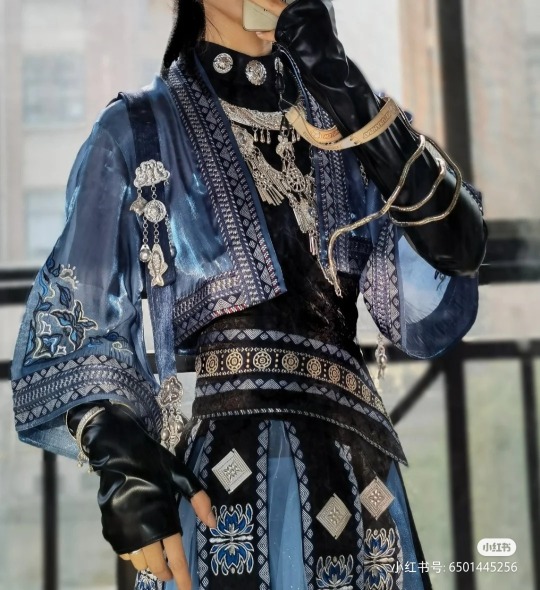
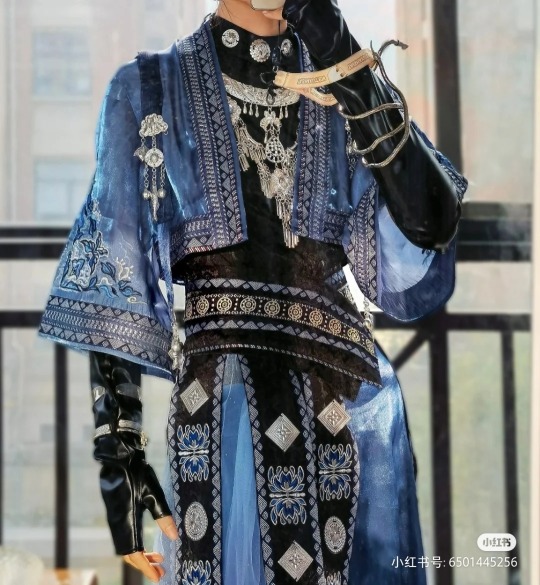
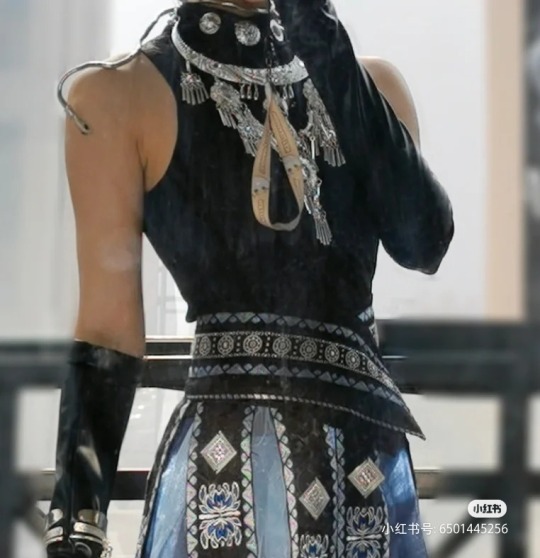


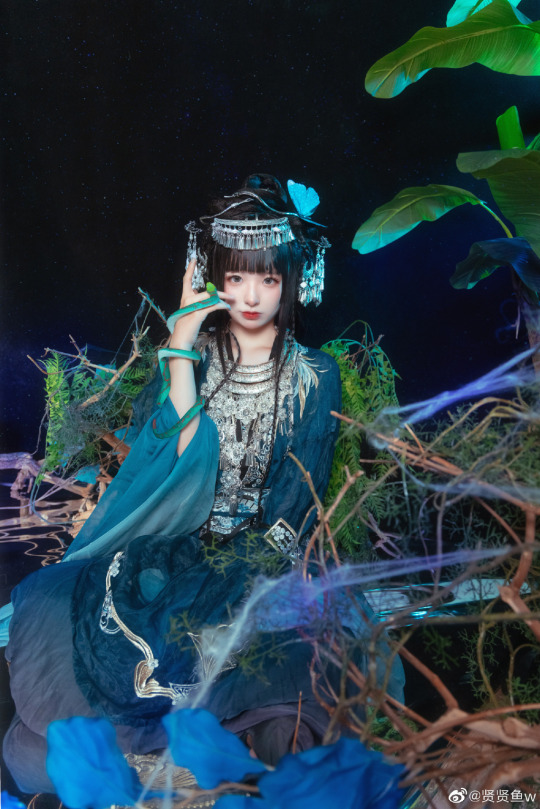
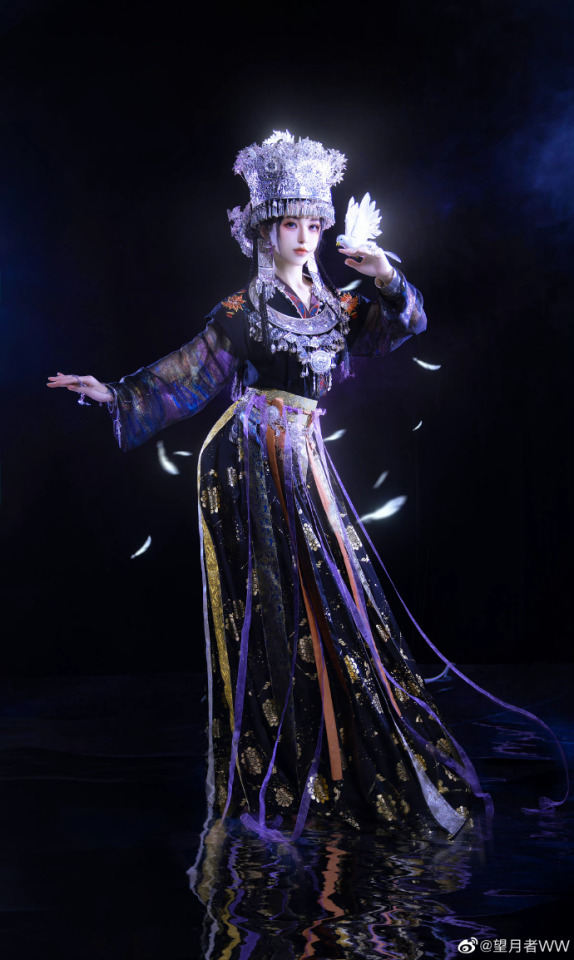
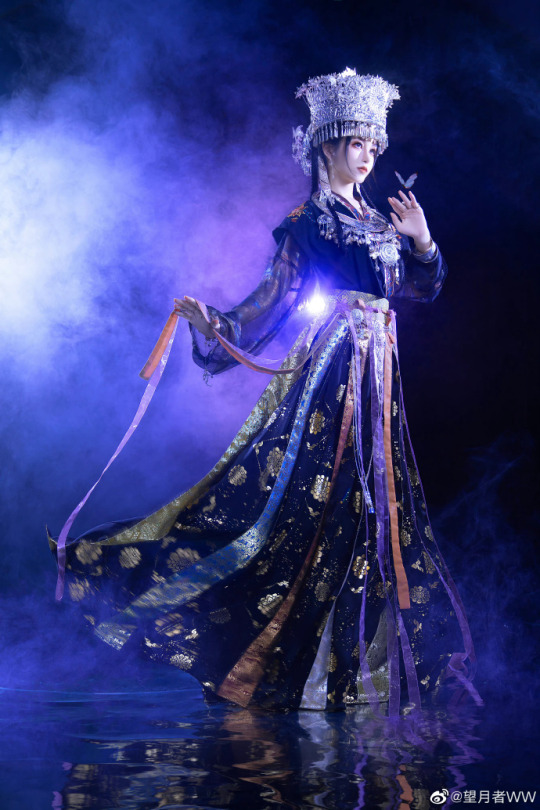
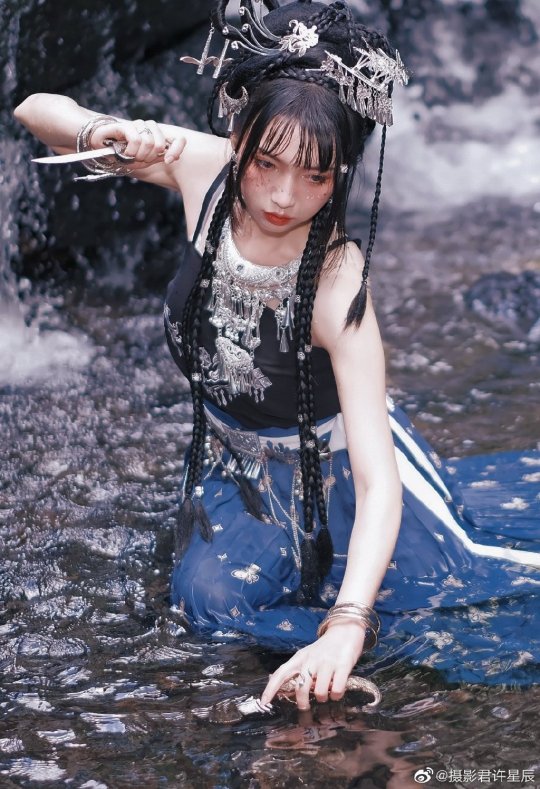
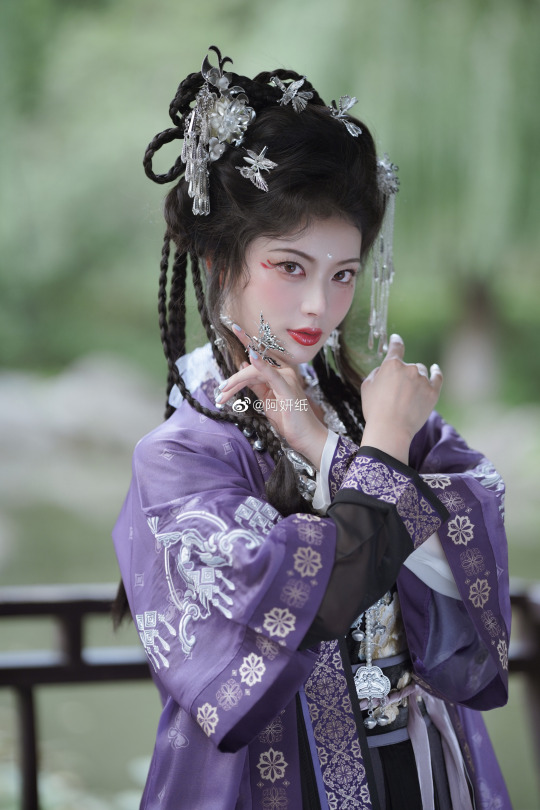
hanfu fashion matched with miao fashion by chinese designers
#china#hanfu#fashion#chinese fashion#miao fashion#designers call this type miaojiang style#miaojiang苗疆 is a concept originated from wuxia culture#wuxia mmorpg game usually have a martial art school called 五仙教 or 五毒教#that is inspired by miao people#miaojiang style is influenced by character design of these mmorpg game#the animals and insects elements such as small snake#butterfly#spider etc. are related from 五毒wudu#it symbolizes the 巫蛊wugu culture of 五毒wudu in wuxia fictions and games#credit as watermark
2K notes
·
View notes
Text
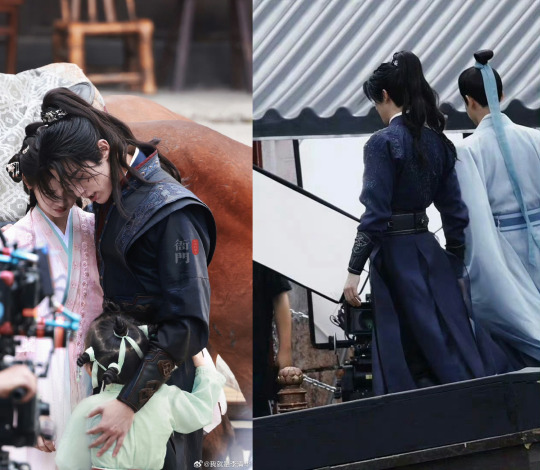
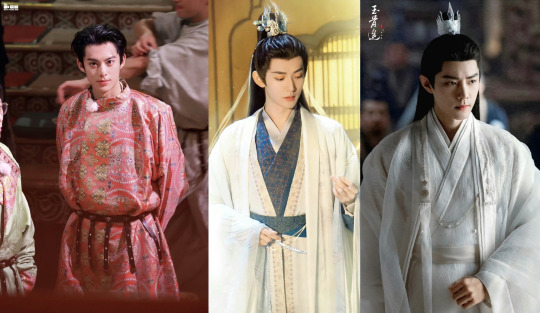

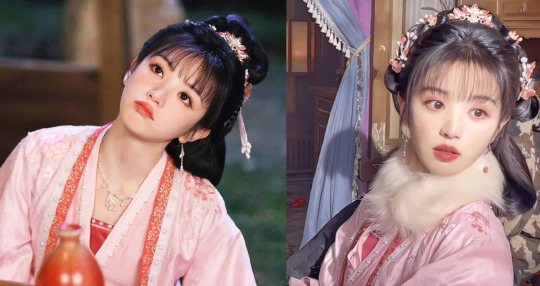
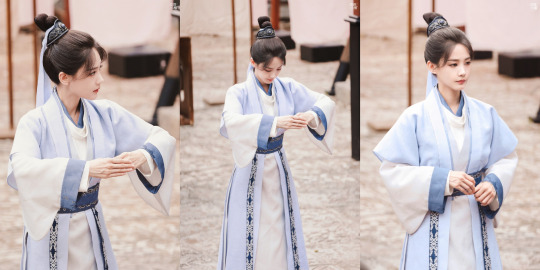

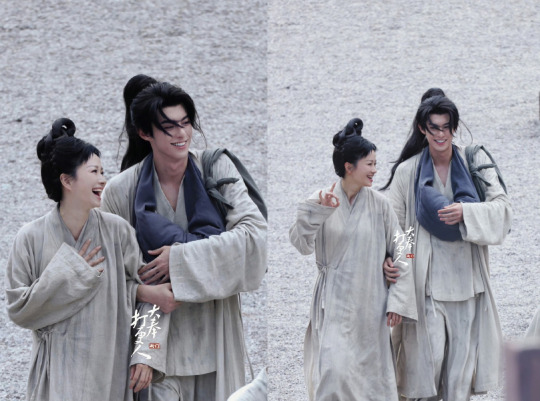
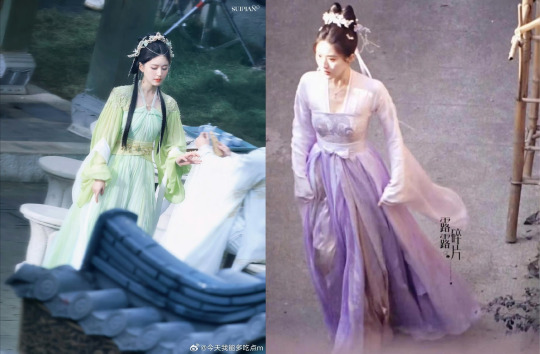

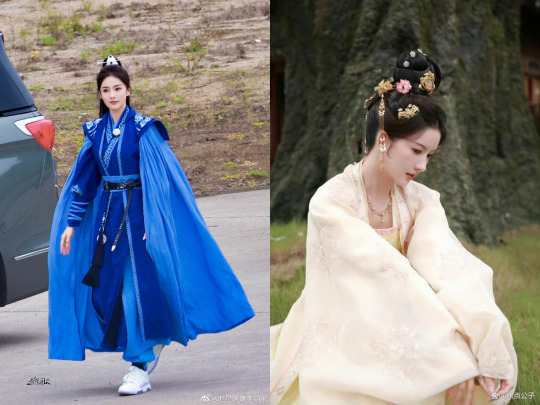

chinese guzhuang fashion
#young actress and actors are cornering the guzhuang market#that's why the industry is becoming more and more competitive#when it comes to guzhuang idol dramas/guouju古偶剧 with fantasy elements(like xianxia dramas)#cnetizens are bored with the same old faces#media has found that young actress and actors (20-27 years old) especially new pretty faces are more appealing to viewers#cnetizens can actually be mean to actress and actors (over 33 years old) cast as lead characters in guzhuang idol dramas#reasons is that lead characters are usually portrayed as teenagers or really young people#and the audience find it very weird to have middle-aged people cast such characters#especially scripts are usually adapted based on fictions#so fans of the novels would be furious about such casting#besides cnetizens want to see normal aging faces#but these shows always use excessive filters and PS#causing the midle-aged faces to be fake and weird#i once saw really mean comments on douyin for xianxia dramas casting middle-aged actress getting over one hundred thousand likes#actress and actors in zhengju正剧 guzhuang dramas or luodi落地 guzhuang dramas are not affected by this#like telling a realistic down-to-earth story or story inspired by real history or related to folks#and there is no fantasy or xianxia elements#china#fashion#chinese fashion#guzhuang#cdramas
306 notes
·
View notes
Text
sure i COULD ramble about how ai is one of the multiple things that check all the marks of humanity's seven deadly sins but would that be extreme
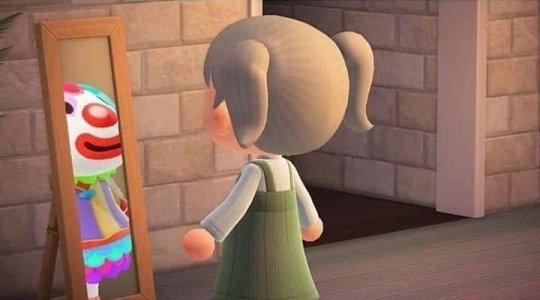
^^^ possibly insufficiently educated
#the pride the hubris of believing you can do better than innovation and nature by playing god and not in the fun way#the lust it's being used for in so many awful cases#the sloth the way its encouraging everyone to check original sources less before believing anything. Also to not take time to develop skill#the greed its being used for profit without consideration for ethics or fair labour#gluttony. we always have to be faster. shinier. better. no matter if it ends up being less convenient or wonky#the wrath it sows in between people creating more differences to be frustrated over. more hatred#the envy how it takes and takes. always trying to be as clever as the best humans. as beautiful as a real forest or sunset.#do you think the ai wants itself#if this were a scifi movie would we be the bad guys#but this is not a movie and the ai cannot love us. so we cannot love it. and there's that#my post#personal stuff#thinking aloud just silly yapping n jazz 没啥事做就这样咯~#( ̄▽ ̄)~*#when i was in primary school our textbooks for chinese had short stories and articles to learn about#there was a fictional scifi oneshot about a family in the future going to the zoo#the scifi zoo trip was going great until the zoo's systems went offline for a moment#and it was revealed that all the animals roaming in their enclosures were holograms#the real ones went extinct ages ago#when the computers came back online the holograms returned and there they were#honestly at first I thought it was a bit exaggerating#but I still think about it once in a while
95 notes
·
View notes
Text
one really interesting thing about the Sui siblings is that their sibling age order isn’t so much about biological age but more about when they first managed to separate themselves from Sui and therefore how comfortable they are in their own individual identity (i’m far from the first person to point out that the Sui siblings are basically the opposite of the seaborne/We Many) - Shuo, the oldest brother is so secure in himself that he’s able to create a whole identity entirely separate from Sui, which is how we get Chongyue The Very Human Guy. Ling is able to defeat the Sui Xiang in invitation to wine with ease simply because she sees it as a shadow of herself, as opposed to Nian who sees the siblings as shadows and dreams of Sui. Dusk, the second youngest of the siblings, is so scared of the existential threat that is Sui that she has hid herself in her paintings and refused to sleep for centuries just to hide from it
… which makes me really want to meet the 12th brother (the cook) because if that is where Dusk, the 11th’s head is at i cannot imagine he’s having a good time either
#arknights#suiposting#there’s a point to made *somewhere* in here about the second brother and how hes been keeping himself intact across the. 181 pieces of hims#but im gonna have to reread invitation to wine for that which#like i dont like reading the english event story because its localised weirdly but i also keep putting off reading the chinese version#because some of the writing is. wow that is hard to understand#if you cant tell from my suiposting and iberiaposting tags who am i and where do i belong are themes that ALWAYS get me in fiction#anyway#god i cant wait for cny I WANT TO MEET THE NEXT DRAGON SO BAD
82 notes
·
View notes
Text

*Originally published in Chinese with the title "Kuángrén Rìjì"; sometimes translated as "A Madman's Diary"
#short stories#short story#diary of a madman#lu xun#chinese language literature#chinese literature#asian literature#19th century literature#book polls#have you read this short fiction?#results
54 notes
·
View notes
Text

Senshi would be Damn Proud of the meal I made my family tonight....
Clockwise: Egg Drop Soup, Chow Mein, Chicken Stir Fry, Fried Rice with mixed Veggies
#by god this fictional mans gonna unfuck my disordered eating habits aint he?#we ALL need Veggies#senshi of izganda#dungeon meshi#the closest Real Chinese Restaurant is three towns aka a 45min drive away aint nobody got time for that
41 notes
·
View notes
Text
like, I'm old school web comic culture, I like handmade zines that are stapled, I just want to make comics and tell stories and the ranking system of the popular webcomic sites exhaust me to my core, which is why I like tumblr. I want to draw sulla wound fingering crassus and not think about the metrics.
#that said i'm a pretty avid reader of korean webcomics and chinese webnovels when i have the money for it#unfortunately i have not had the money for that kind of thing in like. six years RIP#its part of why i dont really plan to paywall my stuff. i want to like. connect somehow. and thinking about a historical fiction comic#in terms of 'is this something someone will pay for?' over 'this is something i FELT in my BONES' kills me#and i do not mean that as an exaggeration. for like two years i was an art industry artist and it did serious critical infrastructure damag#to me. i do commissions and freelance gigs to pay the bills but all i want to do is draw comics#and hopefully! i will make comics that people will want to support through patreon or something like that!#because i would love to not think about trying to pay my bills with this but unfortunately i have student loans#also eventually i would like health insurance. tbh. or actually. dental insurance.
90 notes
·
View notes
Text
Ok I said this on twitter so I’ll say it here too
I’ve been researching Chinese history lately bc I’m an aspiring historian and I’ve learned that the real Confucius’s philosophy involved the idea that you should always honor your parents no matter what (yes even if they suck), and that makes me wonder: was giving Clone High’s Confucius shitty parents a deliberate choice to reflect on this, bc that is some really sad irony. I’m just saying Confi’s parents are blatantly neglectful and implied to be emotionally abusive and he is completely aware of how horrible they are to him but he doesn’t seem to hate them for it. Plus he’s talked about trying to be more like his clone father so it would make sense why he wouldn’t hate or have any distain for his foster family despite how they treat him, he’s just following the original Confucius’s beliefs just because he thinks that he’s supposed to. Can we have an episode focusing on this? Like, we go more into how awful his parents are and someone (maybe Harriet or Frida, maaaayyyybe Abe or Joan) tries to tell him “hey dude, your parents kinda suck” and he uses brings up how his clone dad would have wanted him to respect his foster parents anyway, and keeps trying to excuse his parents’s behavior until they do something that genuinely ticks him off and finally stands up for himself and realizes “maybe my clone dad was wrong”
#maybe I’m reading too deep into this#oh well#psychoanalyzing fictional characters is fun#clone high#clone high confucius#correct me if I’m wrong about any of the Chinese history stuff
69 notes
·
View notes
Link
Support Making Queer History on Patreon
Send in a One-Time Donation
Email Making Queer History: [email protected]
Follow us on:
Pinterest, Twitter, Instagram, Facebook
275 notes
·
View notes